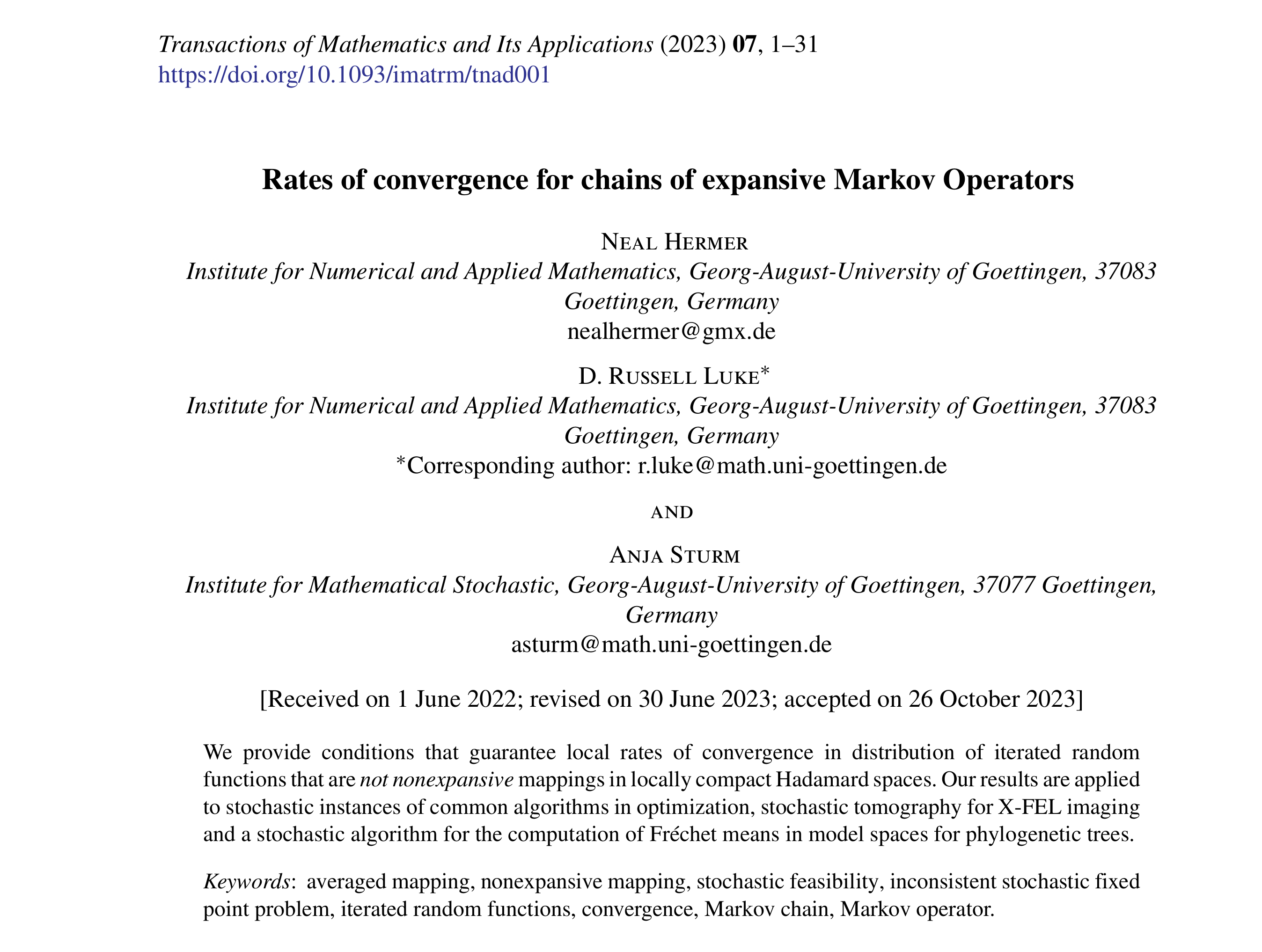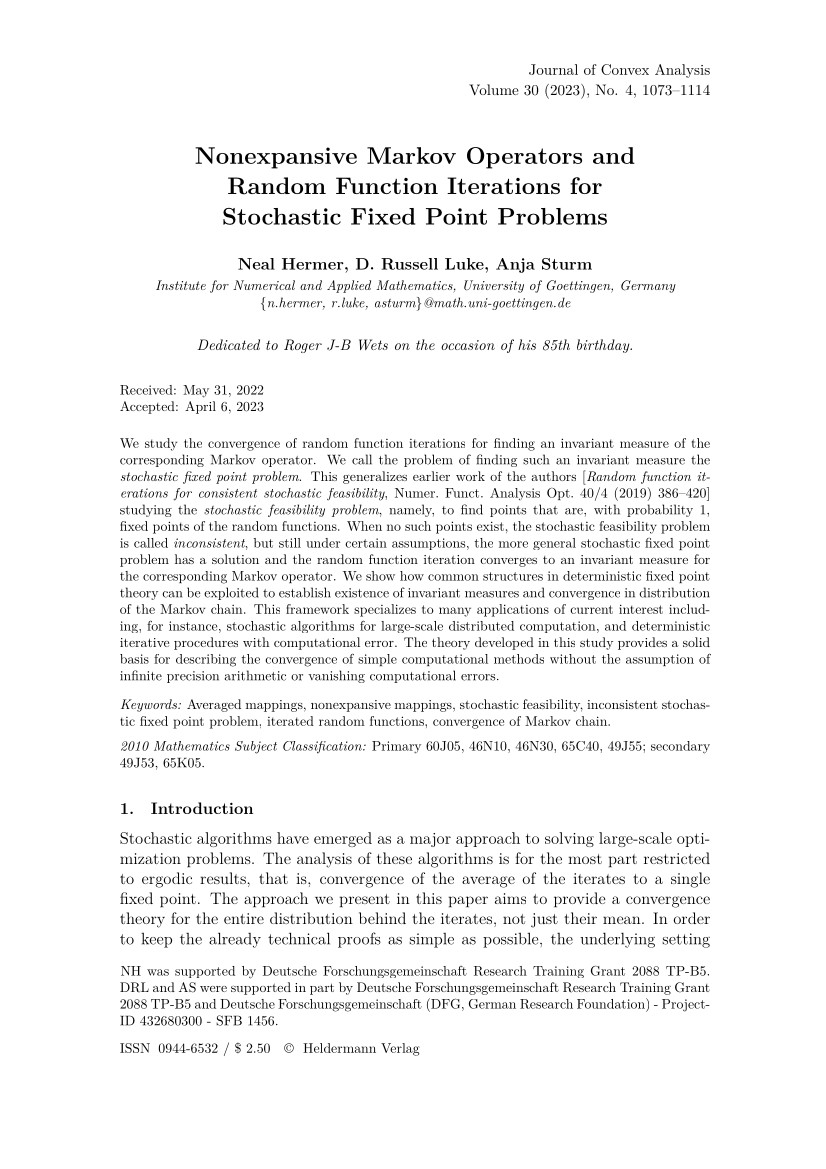Workgroup "Continuous Optimization, Variational Analysis and Inverse Problems"
Optimization has played a central role in applied mathematics with applications spanning both the social and natural sciences as well as engineering and finance. Continuous optimization is often associated with branches of analysis and its central theoretical contributions concern the analysis of nonsmooth and set-valued objects. The tools of classical analysis, including derivatives, integrals and resolvents, are contained in the more modern language of variational analysis which comprises the theoretical foundation of mathematical optimization. This branch of analysis diverges from classical analysis in that the smoothness, or differentiability of functions is not the principle distinction between classes of functions. Rather, the geometrical concept of convexity plays a crucial role in distinguishing "easy" from "hard", or analytically tractable from intractable. Modern variational analysis has evolved since the late 1980's out of convex analysis with applications almost exclusively in mathematical optimization, though the study of variational inequalities appearing in some dynamical and evolution systems is also an active area of research. The interplay between applications and theory is central to continuous optimization, grounding abstract theory in concrete problems on one hand, and on the other hand opening up new capabilities in industry and science.
Recent Publications
Announcements
PhD position in mathematical optimization starting April 2026.


